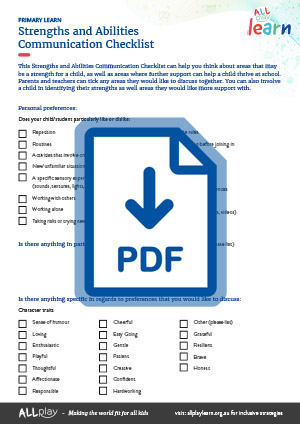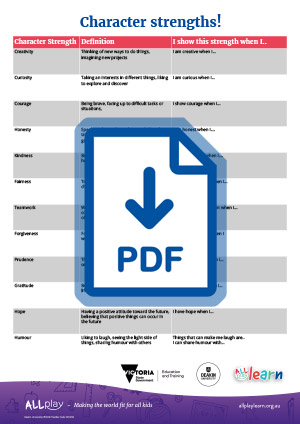Get more information. Talk with the child and their parents to find out the child’s unique strengths and abilities, any areas they need more support with, and the best methods of communication.
Build a relationship with other professionals involved in supporting the child. Working together can lead to a shared understanding of how best to support the child and to using strategies that are the same in the early childhood education and care setting and other settings such as home. Practise fine motor skills regularly. Fine motor activities could include arts and crafts (e.g. cutting and folding paper, making kites, assembling materials together), manipulating things with fingers (e.g. play dough, clay) and games using fingers (making shadow figures, playing with puppets). Practise these activities regularly.
Help children develop movement skills. Children can improve their gross motor skills (e.g. ability to move around a room) with activities that encourage hopping, galloping, jumping and kicking. These may include obstacles courses, music or dancing. Match activity level of difficulty to each child’s skill level. As children become more confident with a skill, gradually make the tasks more difficult. Aim to engage children in active activities every session where possible.
Improve object-control. Bouncing, catching and throwing balls may help children learn how to control objects with their hands. Match activity level of difficulty to each child’s skill level, and as children become more confident with a skill, gradually make the tasks more difficult. Aim to have children practise these skills every session where possible. Use music to get children moving. Music can improve movement ability in children who are blind or low vision. Try “moving to the beat” of an instrument in a safe environment, or letting children adapt how they play an instrument to better fit with their abilities.
Allow time for child-directed play and learning. Consider letting children choose their preferred toys and materials, and provide them with plenty of time to explore them. Some play materials may need to be modified. For example, Velcro added to toys can help the child with motor challenges hold on.
Focus on what children can do. Provide encouragement, especially of children’s strengths and achievements. Your attitude can make a difference in children’s participation and learning.
Remove clutter. De-cluttering the environment can allow for easy movement for all children with reduced motor skills.








